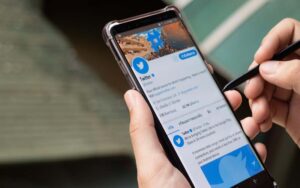
An average user spends roughly two to two and a half hours online. There’s no denying to all the fun things you can do online. Catching up with old classmates, watching nostalgic music videos, and learning to get your piecrust right – the online realm is the best thing that could’ve ever happened to us.
However, underneath all the best things lies one that you must never ever take lightly – cybersecurity. Of all the hours that you’re spending online, if you’re not guaranteeing yourself a safe and secure online presence, then things will inevitably go sour. Whether you’re using your laptop, smartphone, or tablet on a home or work network. Negative entities are always on the lookout to attack and strip you of your valuable info.
Ways To Stay Safe Online
Opt For a Strong Password
Complex passwords are hard to guess. For your email addresses, Wi-Fi networks, and devices, be sure to go for a password that contains special characters such as @,$,!,*, etc. as well. If you have trouble remembering your password, then save your password in your phone or laptop’s notes. Do not write it anywhere, as that can cause you serious trouble.
Use Encryption
Encryption secures your data and only makes it readable to those who know proper key to access it. For instance, websites beginning with HTTPS have a secure method of sending and receiving data. On the other hand, websites that don’t encrypt their data aren’t a good place to stick around. Such sites put your information at risk as anyone can tap into it. You may have read the message on top of WhatsApp chats about ‘End-to-End’ encryption. If your chats weren’t encrypted, anyone could’ve breached your chatroom and read your messages.
Two-Factor Authentic is the Key
Almost all the leading platforms such as Facebook, Google, Hotmail, etc. now offer Two-Authentic authentication or 2FA. 2FA provides you a second channel that serves as a ‘second password’ in case you’re locked out of your account. 2FA is super handy as it alerts you via email or text, every time someone accesses your account via an unknown device.
Using a Reliable Antivirus
Antivirus software monitors your devices for any suspicious file or link in your computer that could potentially damage your data. Antivirus software rolls out real-time notifications to alert you of suspicious things in your system. Moreover, it lets you run frequent scans to make sure nothing is loitering inside your PC. For your antivirus to perform without a glitch, be sure to keep a robust internet connection such as Spectrum at your hand.
Create Data Backups
Keeping a backup of your data in a hard drive goes a long way. External backups are super handy for, A) not over-crowding your system with data and B) keeping your critical data safe from hackers. You can always remove critical files from your computer after creating their backups. Even if a hacker does enter your system, your critical data would remain safe.
Shut Down Your Computer After Every Use
Putting computer to sleep surely frees us from the agonizing wait, but trust us, it’s not worth it. Whenever your computer is free for a long stretch, shut it down completely. Shutdowns act like ‘drain cleaners’ for our network. For instance, if there was a hacker ready to tap into your system by establishing a connection with your network, by shutting the system down, you can break the network connections and avoid potential mischief.
Don’t Click On Weird Links
Probably every hacker’s favorite way to breach your system is by tempting you to click on links and email. That fancy font glimmering across the screen, tempting you to click and see the attachment. Your parents and other elders in the house who aren’t familiar with such phishing emails often become victims of these attempts.
Such emails are easy to identify for their poor grammar and obvious misspells. Let the elders in your family know about this.
All Things Concluded
You have no idea how eager those hackers are to tap into your system and cause a serious data breach. Be mindful and always stay alert of your interaction with the entities online. Always use your ‘online peripheral vision’ to keep your critical data safe from lousy attempts from hackers.






